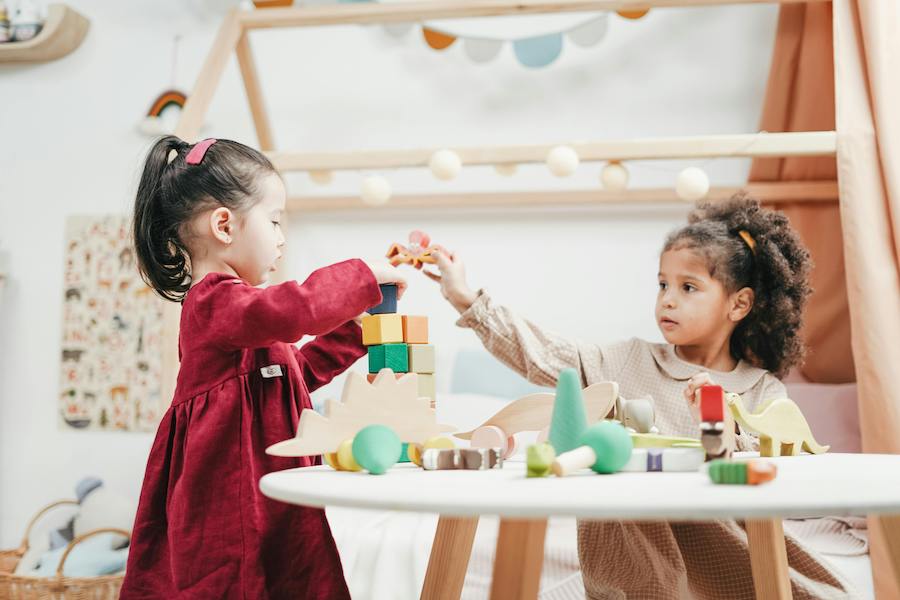“Are kids getting dumber?” This question, though jarring, reflects a broader anxiety about the changing landscape of childhood in our digital age. It’s a concern that resonates deeply with parents, educators, and society as a whole, sparking debates about educational standards, the impact of technology on young minds, and the evolving challenges faced by today’s youth. In this comprehensive article, we’ll delve into the heart of this issue, dissecting the facts from fiction and shedding light on how modern lifestyles influence cognitive development in children.
We’ll examine the role of technology in children’s lives, addressing concerns about screen time and its correlation with cognitive skills and social development. By exploring cutting-edge research and expert opinions, we aim to offer a balanced view on whether digital devices are truly hindering our children’s intellectual growth or simply altering the way they learn and interact with the world.
Furthermore, we’ll confront the myths surrounding declining academic performance, investigating whether standardized test scores genuinely reflect a decrease in intelligence or if they’re indicative of changing educational paradigms and teaching methods. Are our educational systems adapting to cater to the unique needs and learning styles of a generation that’s growing up in a vastly different environment than their predecessors?
In addition to unraveling these complex questions, this article will provide valuable advice for concerned parents and educators. We’ll present practical strategies and actionable tips to foster a nurturing environment that supports holistic child development, both intellectually and emotionally. From encouraging critical thinking and creativity to promoting a love for learning, we’ll guide you through effective ways to enhance your child’s cognitive abilities and prepare them for the challenges of the future.
“Are kids getting dumber?” As we navigate through this thought-provoking topic, we invite you to join us in a journey of understanding and discovery. Together, we’ll explore how societal changes, educational practices, and parental involvement collectively shape the minds of our future generations.

Read More blogs: The Best Loungewear Brands for Tweens & Teen Girls
Myth-Busting: The Evolution of Intelligence
The claim that children are becoming less intelligent is a myth that fails to recognize the evolution of intelligence and learning styles. Traditional measures of intelligence, often anchored in rote memorization and linear problem-solving, are becoming outdated. Today’s children navigate a complex digital world, developing skills like adaptability, information synthesis, and tech-savviness early on. These are not signs of diminishing intelligence but evidence of an evolving cognitive landscape.
Understanding the Impact of Digital Technology
One of the most significant shifts in childhood development is the pervasive influence of digital technology. Parents often worry that excessive screen time is hampering their children’s intellectual growth. While it’s true that unregulated screen time can have negative effects, it’s equally important to recognize the educational benefits of technology. Interactive apps, educational games, and online resources offer innovative ways to learn and engage.
Encouraging Holistic Development
To ensure a balanced development, it’s crucial to blend traditional learning methods with modern technology. Encourage activities that promote critical thinking, creativity, and social skills. Simple measures like reading together, engaging in outdoor play, and fostering curiosity can have a profound impact on a child’s intellectual and emotional growth.

The Role of Nutrition and Health
Physical health plays a pivotal role in cognitive development. A balanced diet, regular exercise, and adequate sleep are foundational to brain health. As parents and caregivers, prioritizing these aspects can boost cognitive functions and overall well-being.
Navigating Educational Challenges
The educational system is under scrutiny for not keeping pace with the evolving needs of children. Standardized testing and a one-size-fits-all curriculum can overlook individual learning styles and strengths. Advocating for more personalized, flexible education models is key to nurturing diverse intelligences.
Emphasizing Emotional Intelligence
Emotional intelligence is as crucial as cognitive intelligence. Teaching empathy, resilience, and emotional regulation can equip children with the skills to navigate an increasingly complex world. Parents and educators should focus on building these competencies alongside academic skills.

Read More Blogs: The Best Christmas Movie For Your Child’s Zodiac Sign
The Power of Play
Play is not just leisure; it’s a critical component of learning. Through play, children develop problem-solving skills, creativity, and social competencies. Encouraging various forms of play, from imaginative to structured, is vital for holistic development.
Fostering a Love for Learning
Instilling a love for learning is perhaps the most significant gift we can give to children. This involves moving beyond traditional metrics of success and valuing curiosity, exploration, and the joy of discovery.
The Role of Community and Collaboration
Learning is not a solitary journey. Involvement in community activities, collaborative projects, and group learning can enrich a child’s educational experience. These interactions provide real-world learning opportunities and develop social skills.
In wrapping up our exploration, it’s clear that the question “Are kids getting dumber?” doesn’t quite capture the essence of the challenges and opportunities presented by our modern era. Instead, the crux of the matter lies in how we, as a society, choose to adapt our parenting strategies, educational paradigms, and societal norms to effectively nurture the minds and spirits of a generation that’s navigating an unprecedented digital landscape.
Our discourse should pivot towards crafting and implementing innovative, flexible educational models and parenting techniques that resonate with the dynamic, multifaceted needs of today’s youth. Recognizing that intelligence is not merely a measure of academic prowess but a tapestry woven from various threads — including emotional intelligence, creative thinking, and problem-solving abilities — is paramount.
By championing a holistic approach to development, we actively contribute to sculpting not just academically proficient minds, but nurturing resilient, empathetic, and adaptable individuals. These are the trailblazers, the innovators, the compassionate leaders who are set to redefine success and societal well-being in the 21st century and beyond.
Let’s shift the dialogue from a reductive concern — “Are kids getting dumber?” — to a constructive and forward-thinking one: “How can we, as a global community, foster an environment where every child has the opportunity to flourish intellectually, emotionally, and socially?” This reframing is not just a change in perspective; it’s a commitment to action, a collective step towards a future where every child is empowered to not just survive but thrive in our ever-evolving world.

